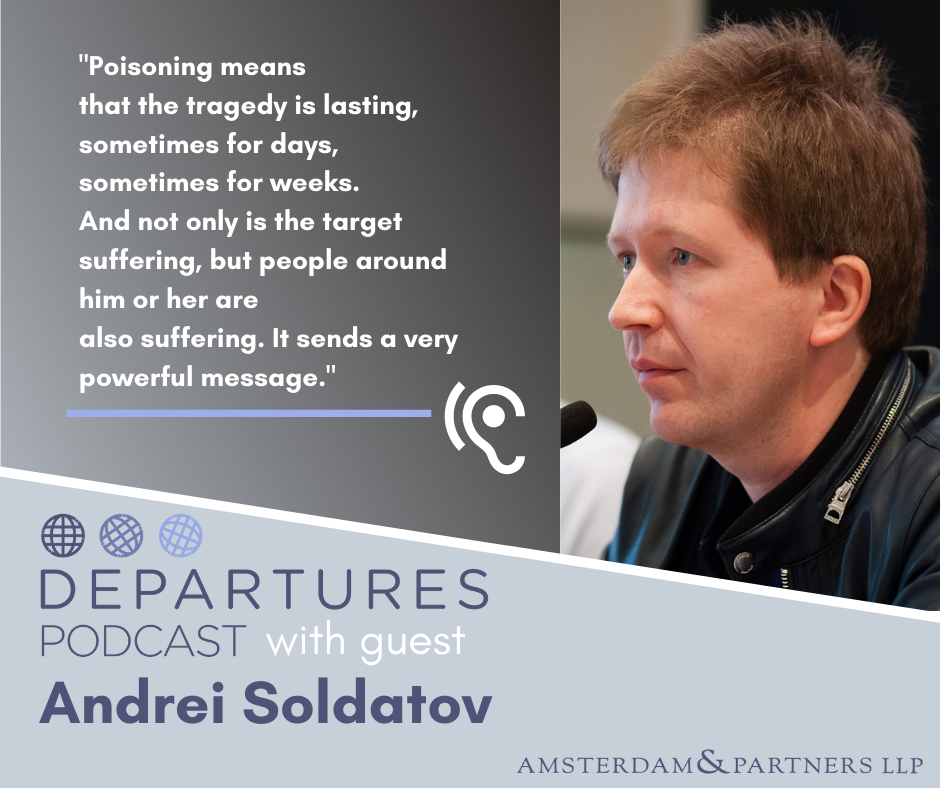Departures Podcast with Andrei Soldatov

assassinations of prominent dissidents, including the nuclear poisoning of Alexander Litvinenko in London, Sergei Skripal in Salisburg, the most recent poisoning of Alexei Navalny presumably in Siberia followed by his recovery in Germany, have come to shape global perceptions of Russia – perhaps based in fear, but also characterized by instability.
Andrei Soldatov, one of Russia’s most revered and deeply sourced journalists specializing in the intelligence services, joins Robert Amsterdam on the podcast this week to discuss his latest book co-authored with Irina Borogan, “The Compatriots: The Brutal and Chaotic History of Russia’s Exiles, Émigrés, and Agents Abroad.”
Soldatov argues with Amsterdam that the choice of poisons such as Novichok, a highly controlled substance, to carry out these attempted assassinations is not accidental, and is instead actually quite strategic.
“It’s actually very smart. It’s only about the message, and only partly about removing a troublemaker. It’s about how to make it absolutely clear to a very big crowd that now the rules are changing,” Soldatov says. “Poisoning means that the tragedy is lasting, sometimes for days, sometimes for weeks. And not only is the target suffering, but people around him or her are also suffering. It sends a very powerful message.”
Soldatov also relates an amusing story of recording a mockumentary with the US television host Stephen Colbert, when they visit room 1101 of the Ritz Carlton Hotel in Moscow, the location cited in the Steele Dossier on potential kompromat held against Donald Trump. What they accidentally find is quite interesting.











